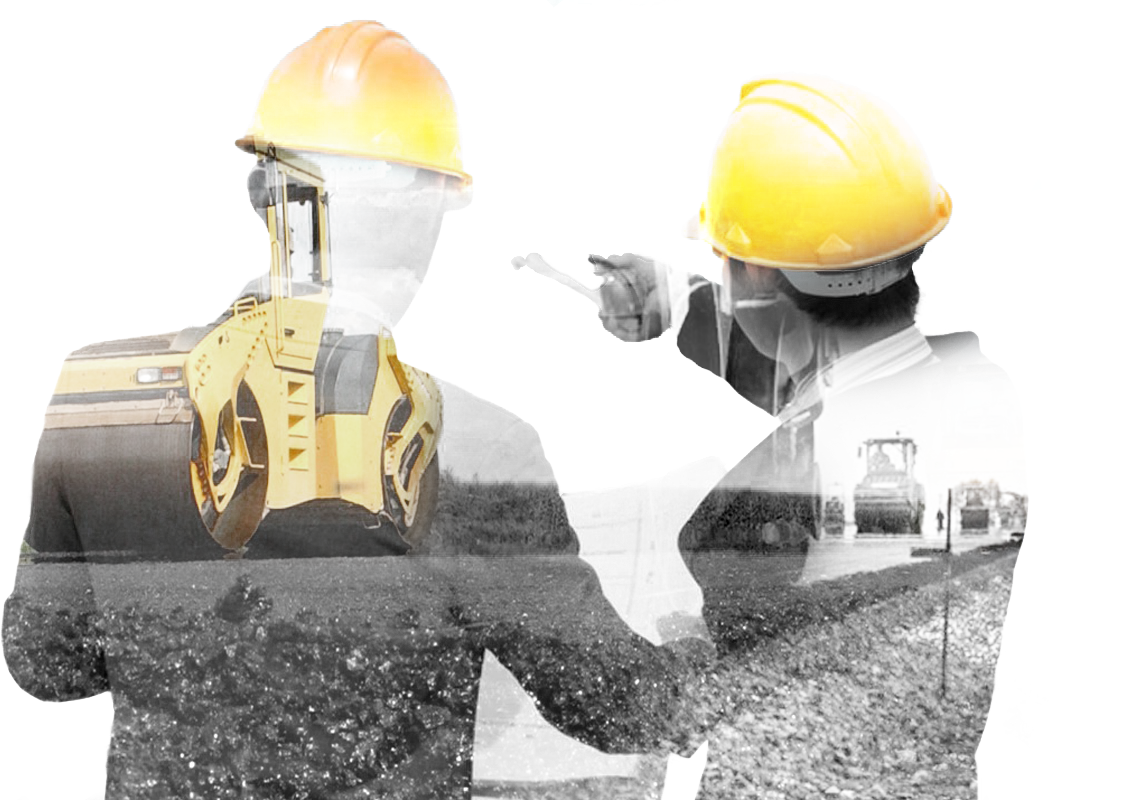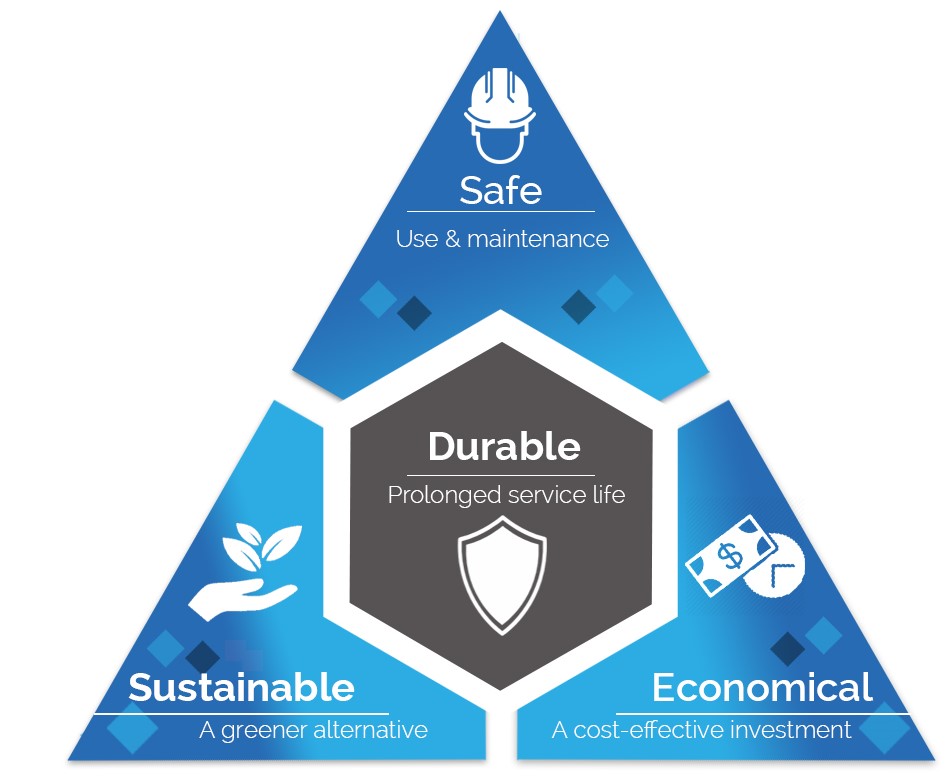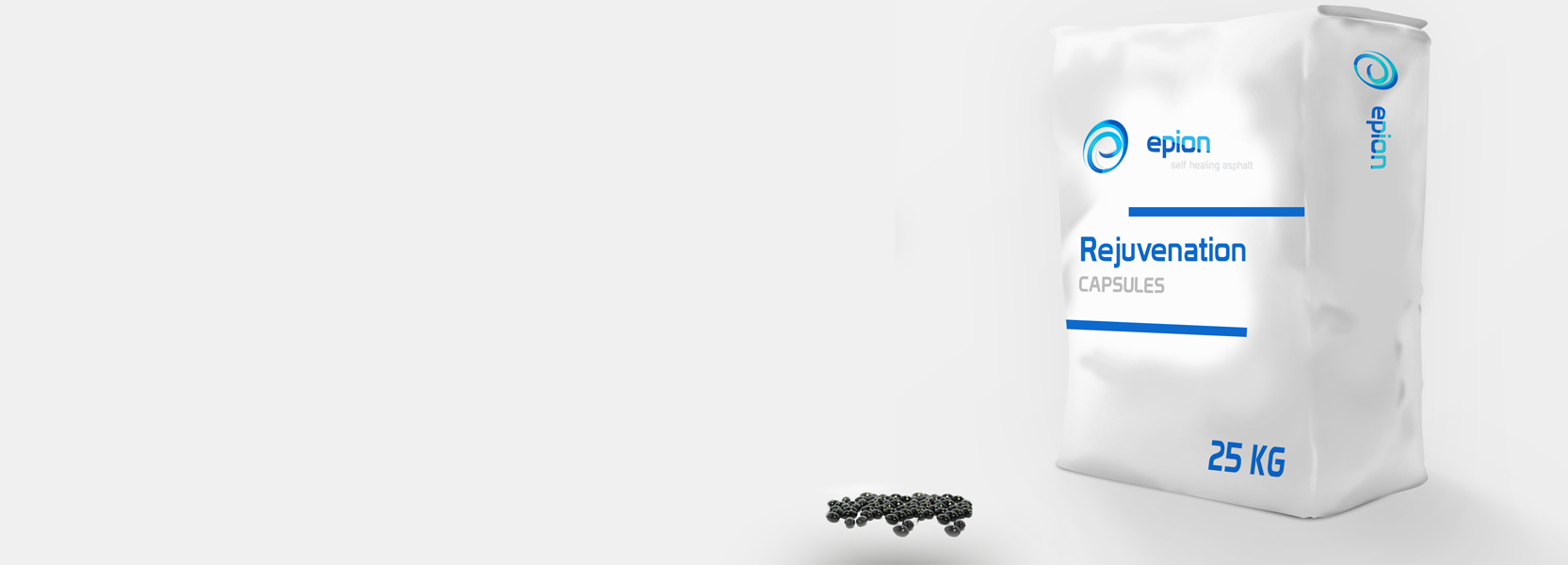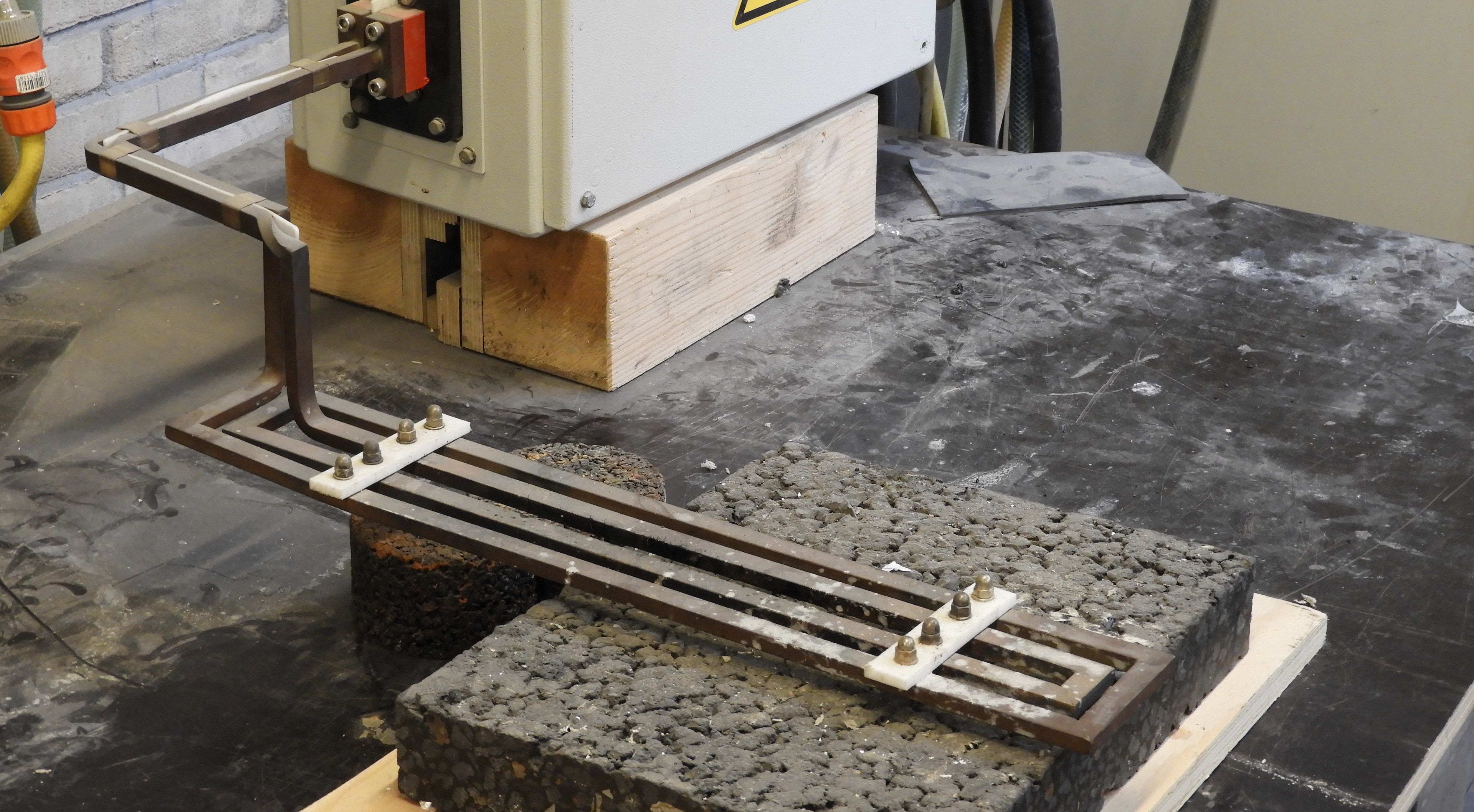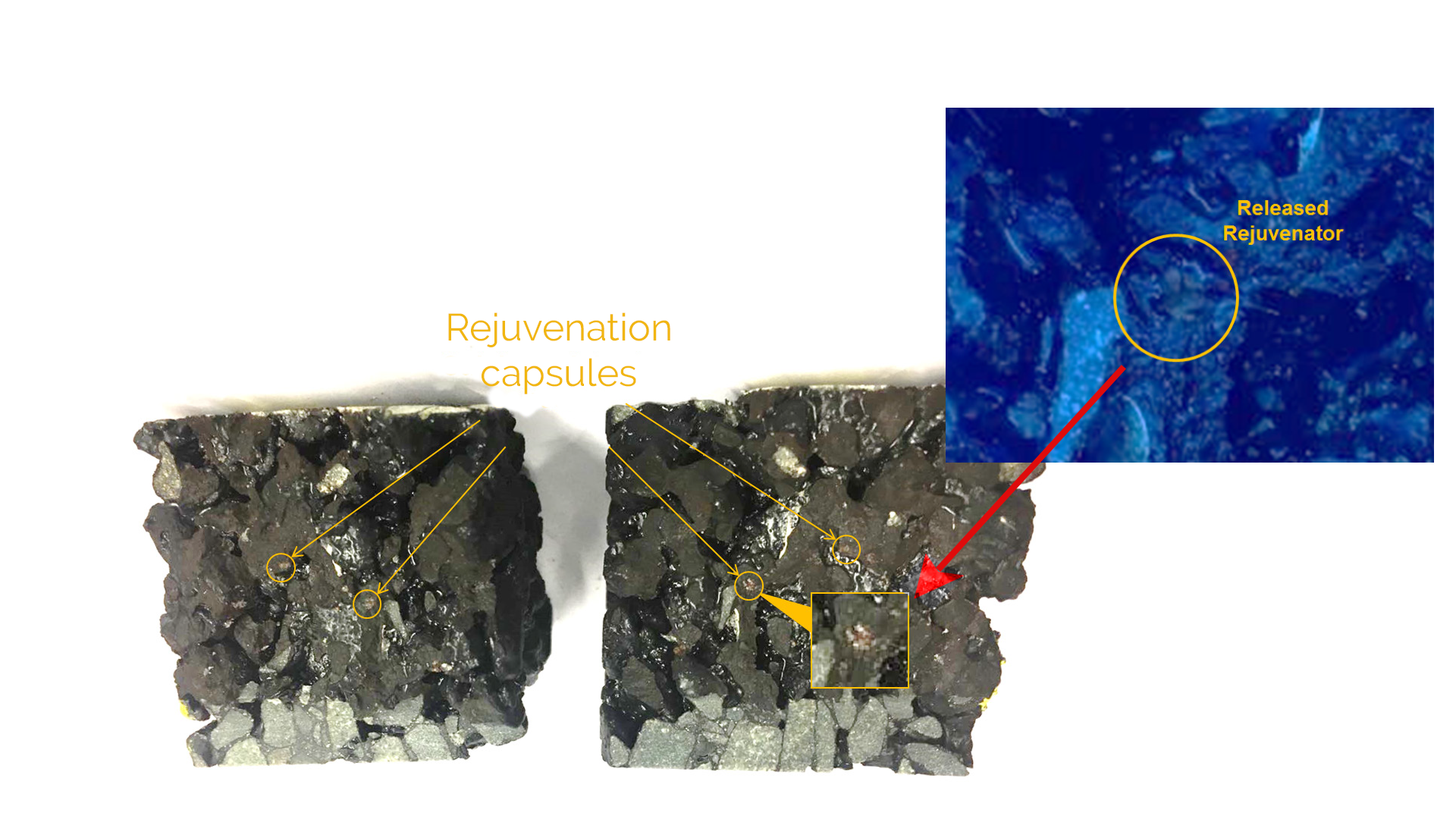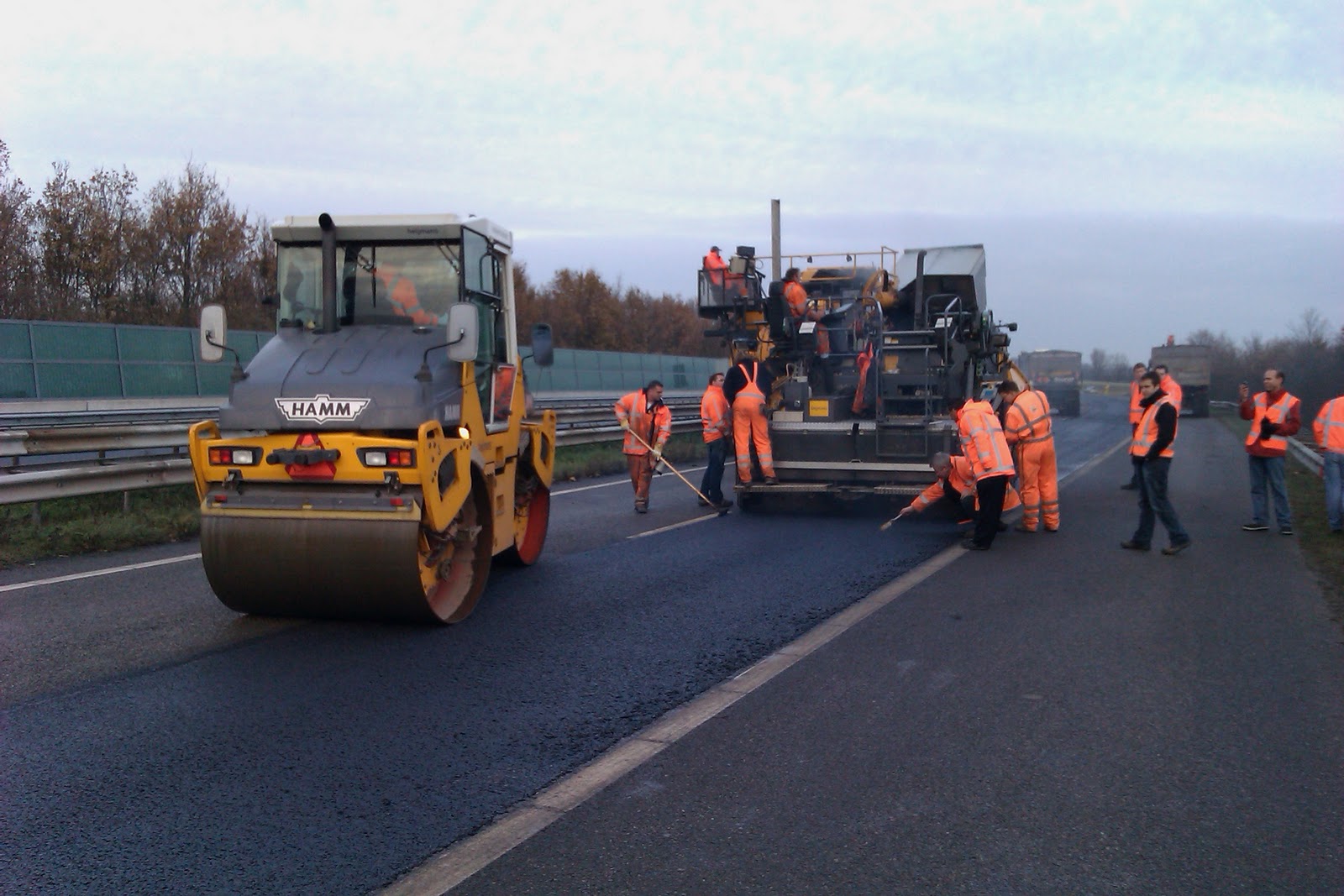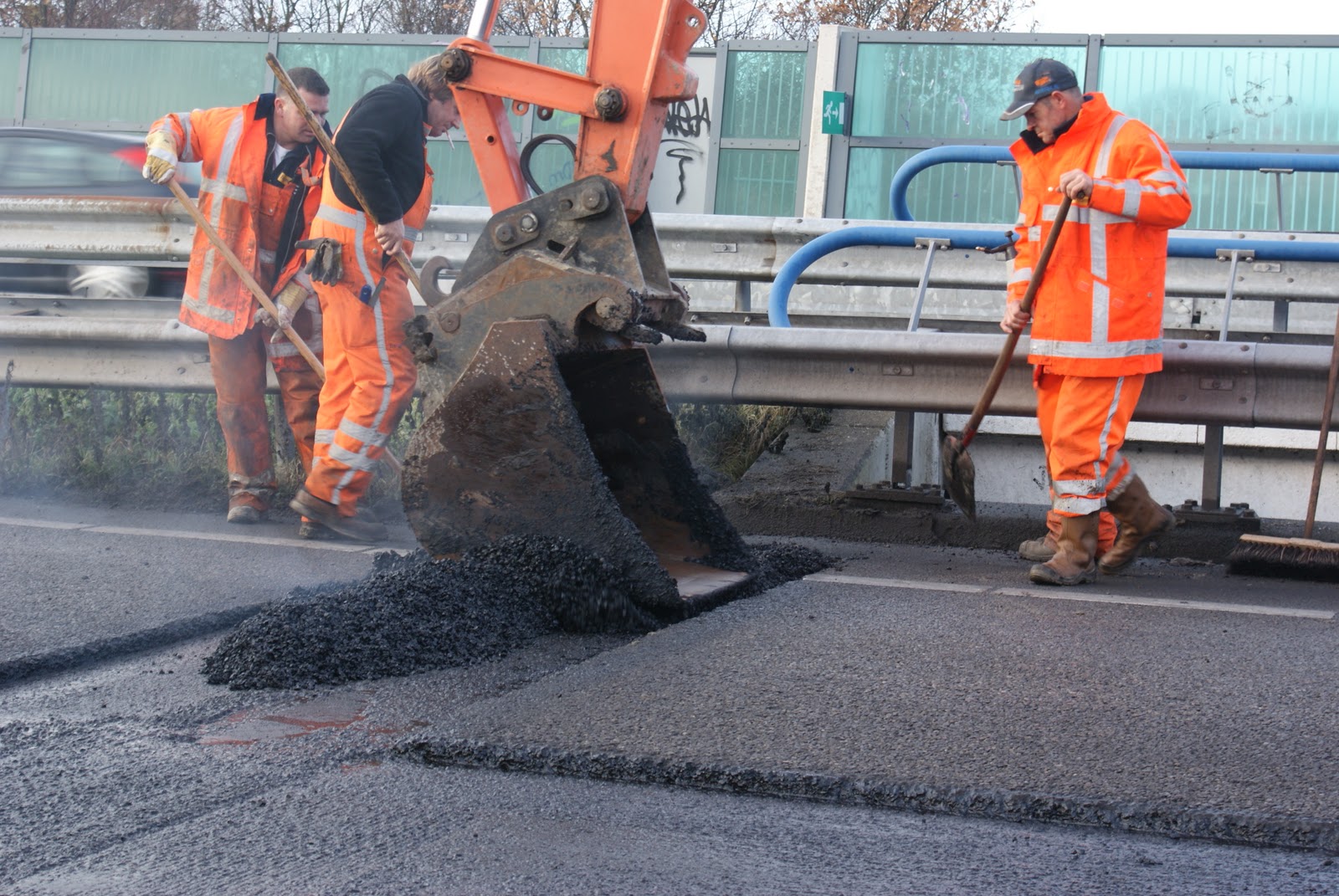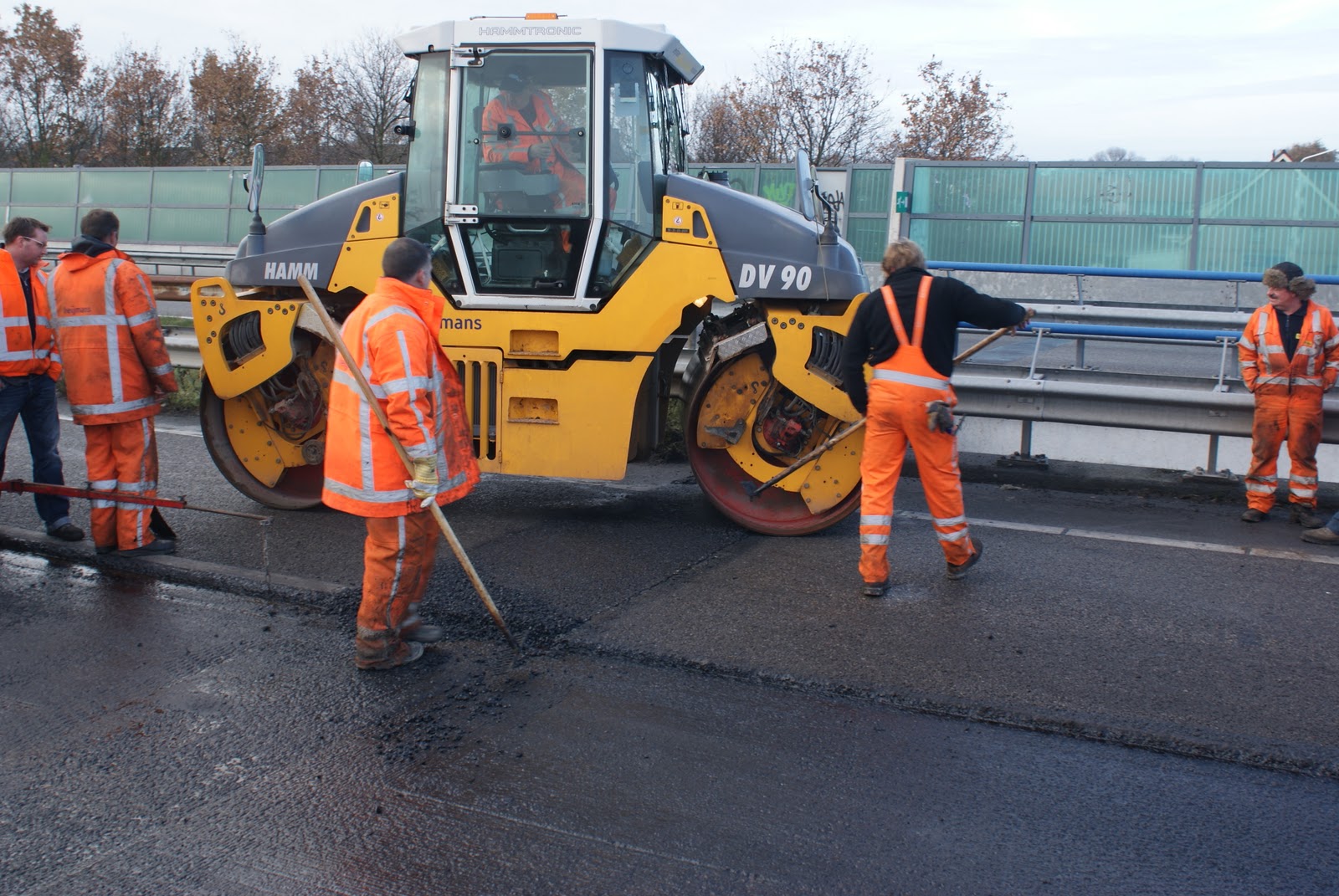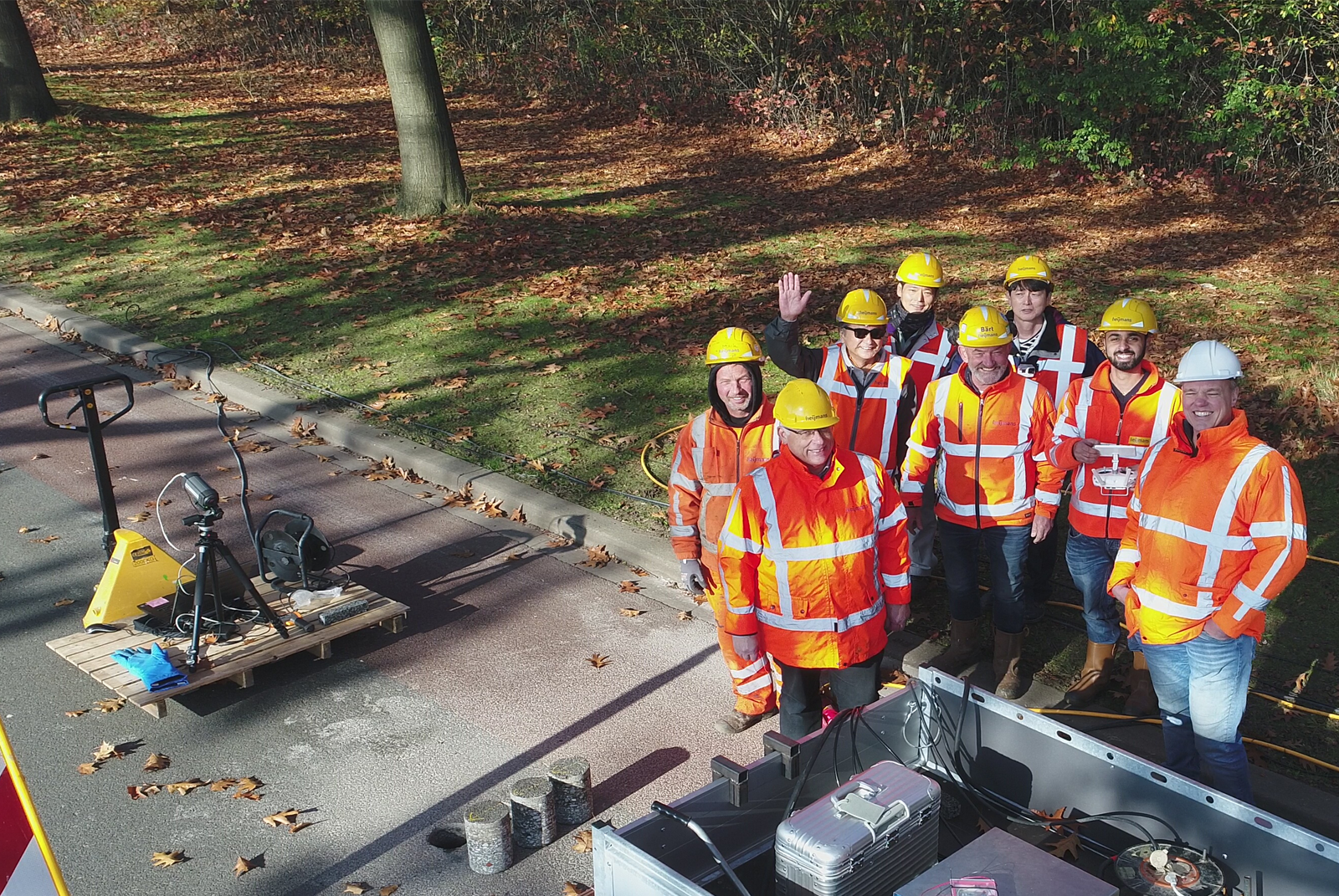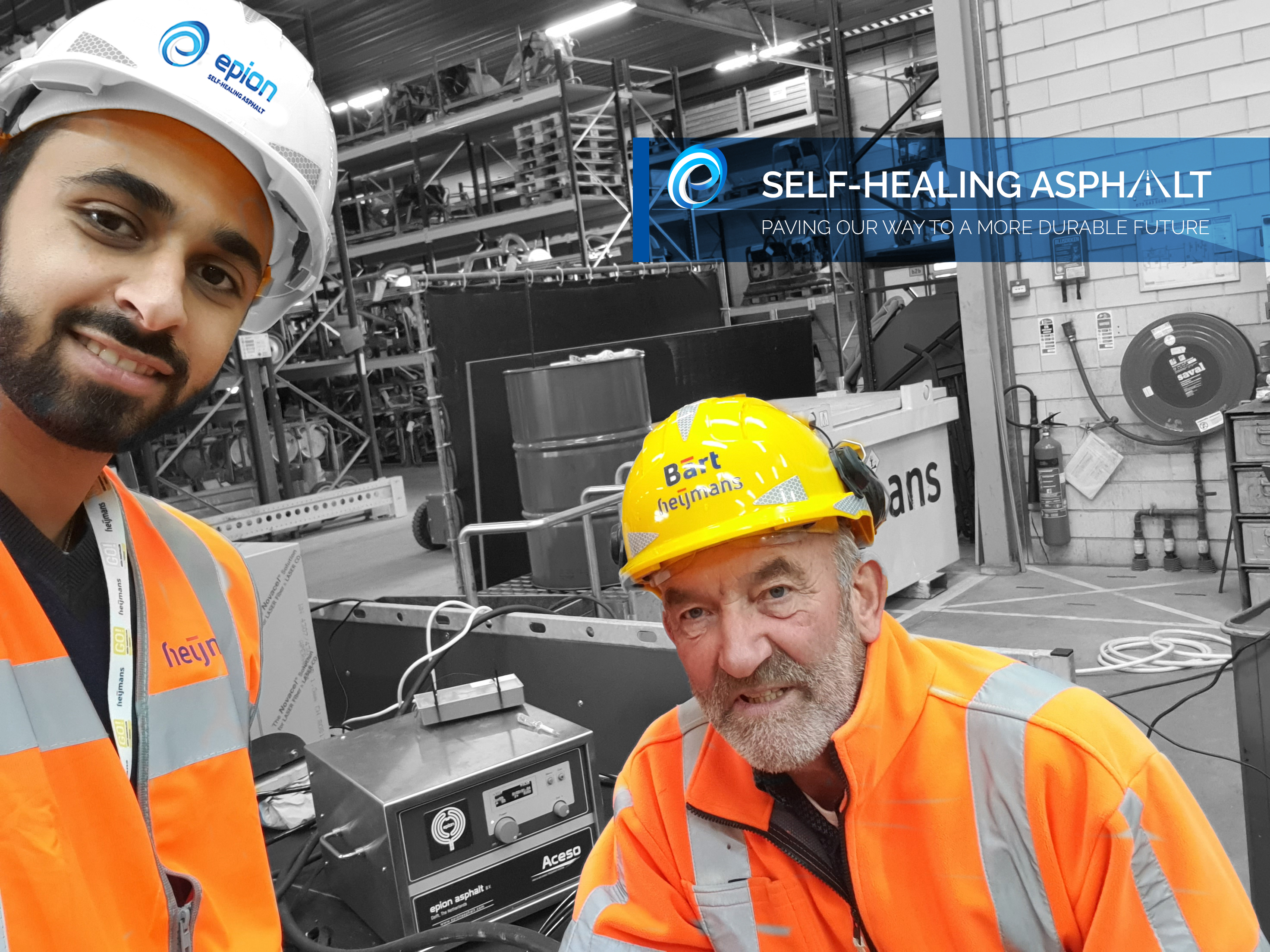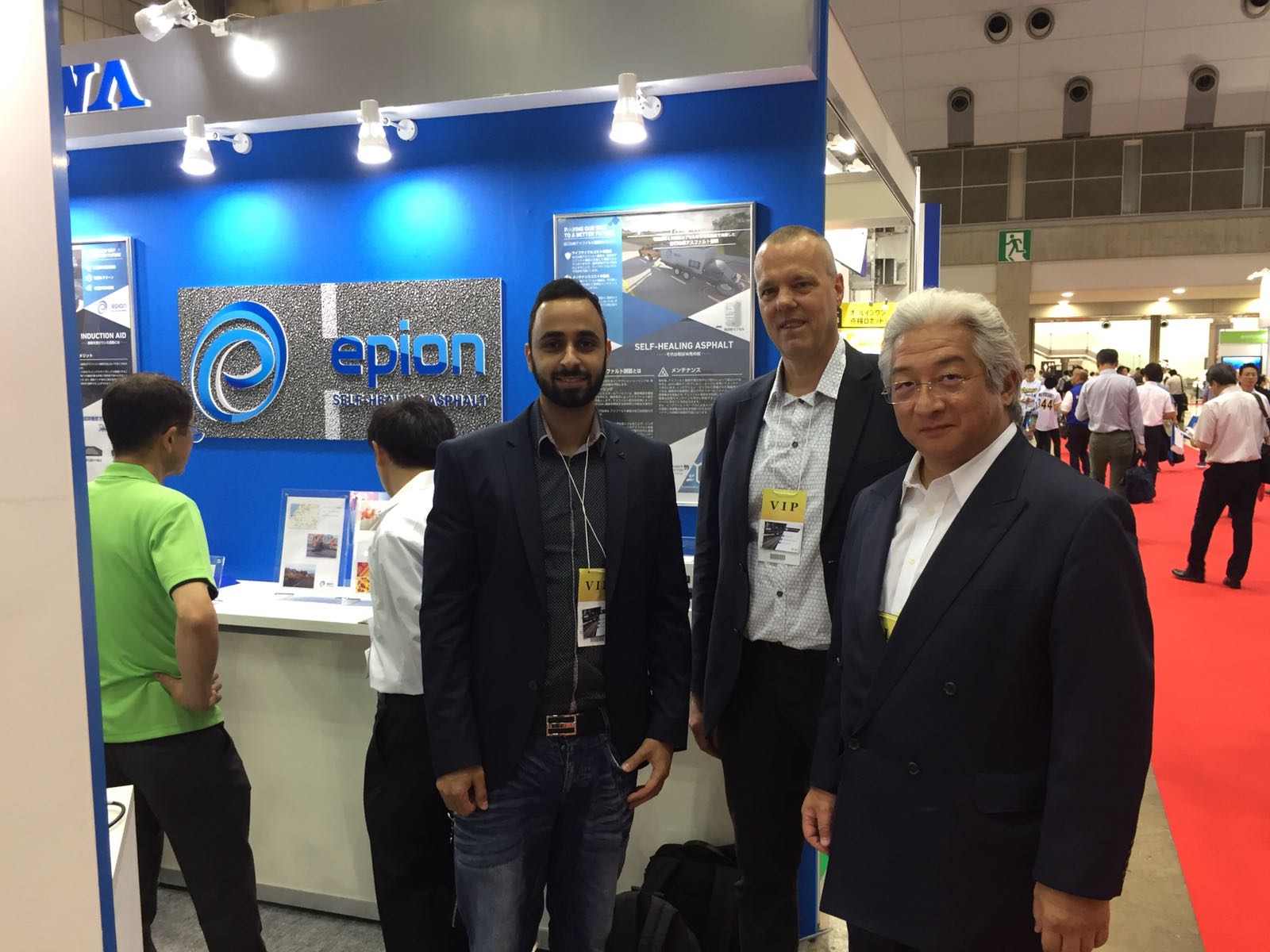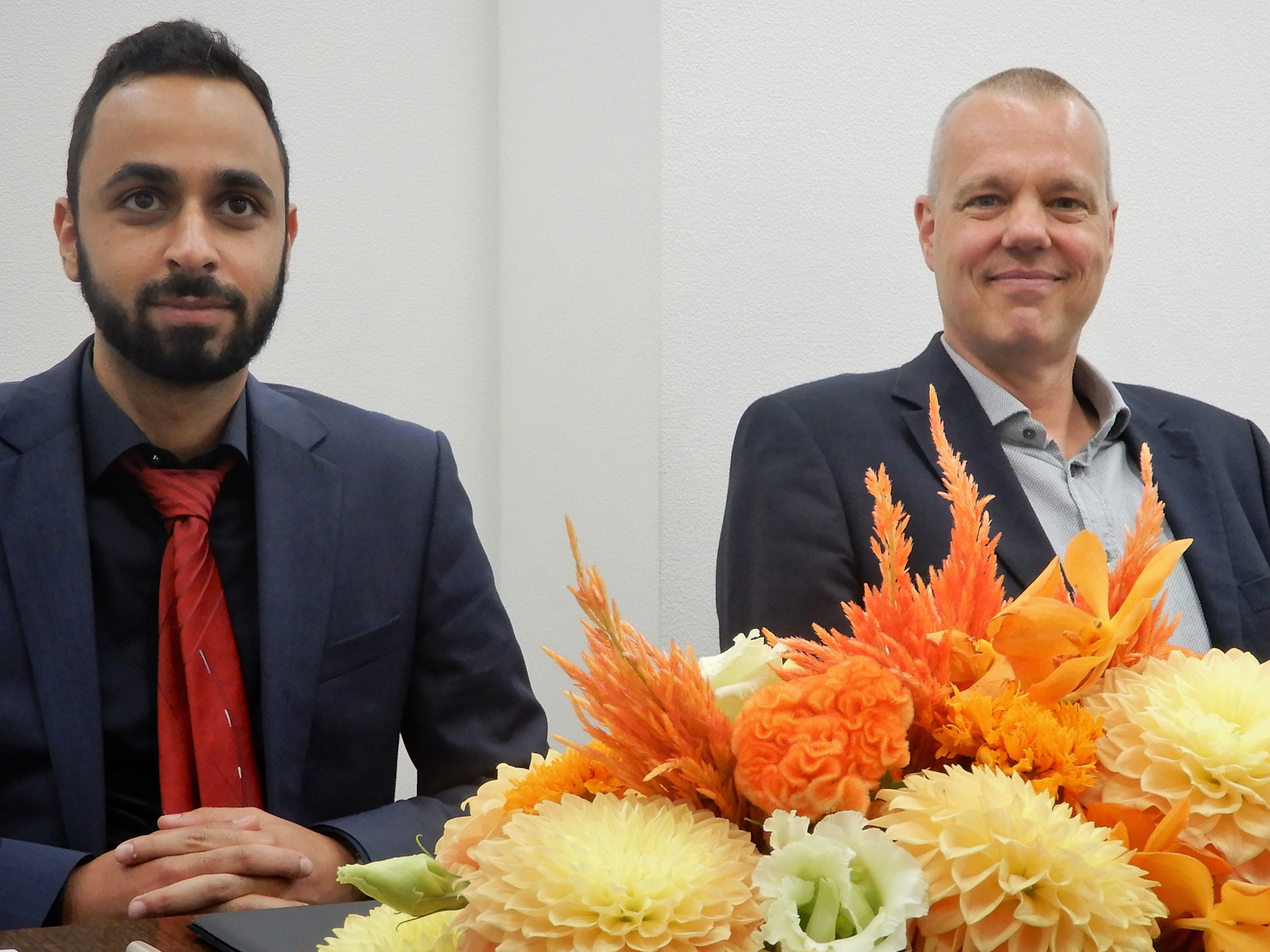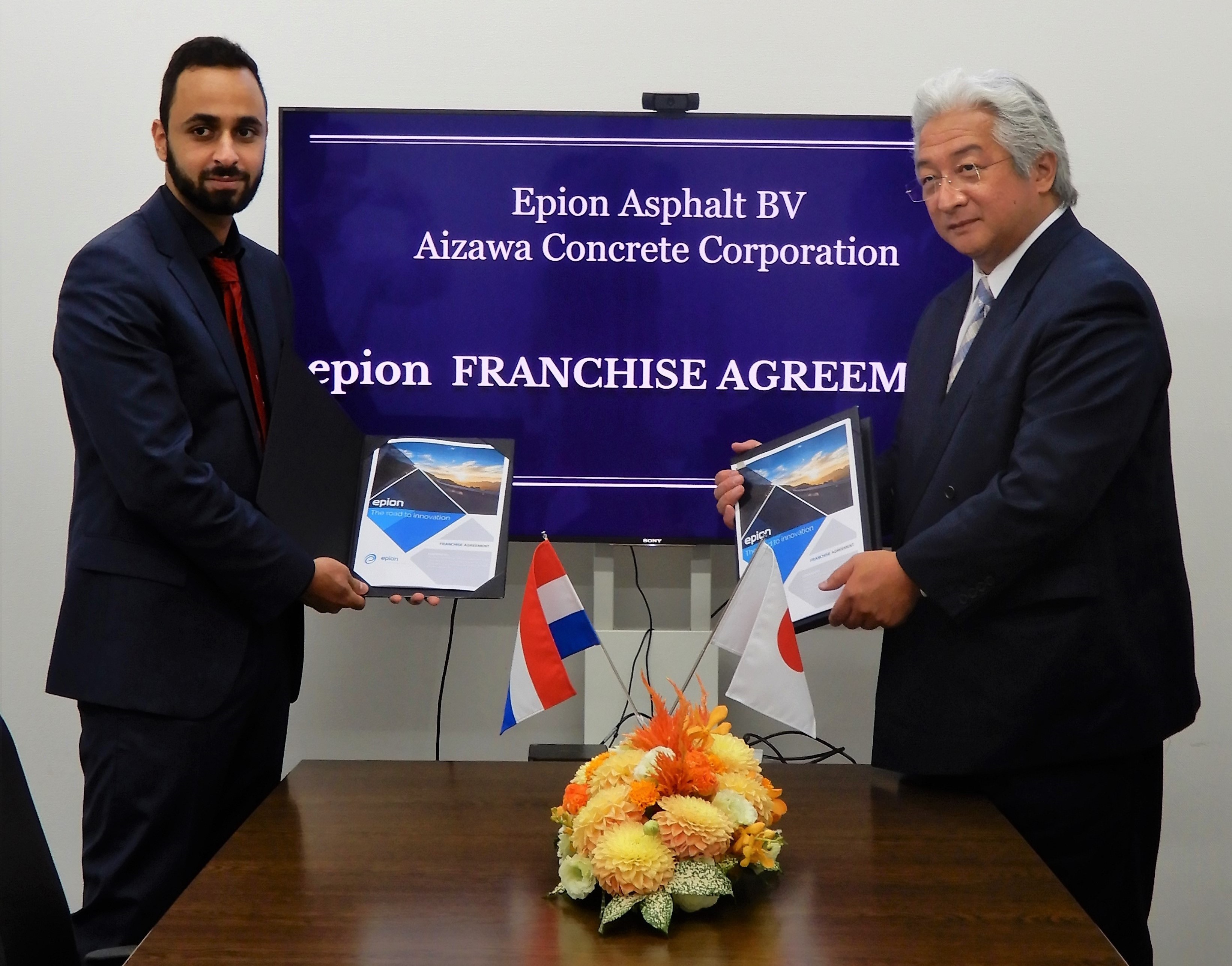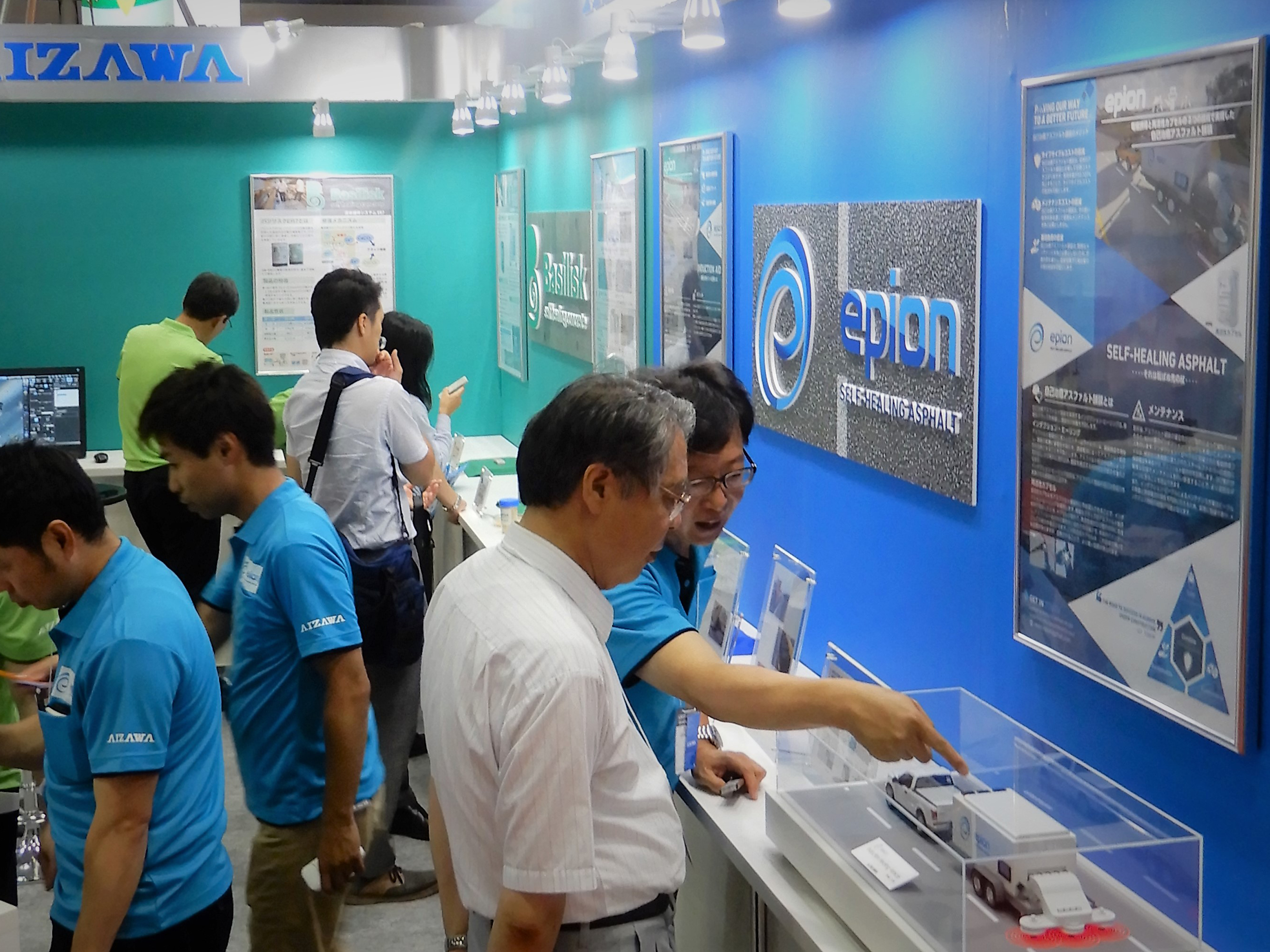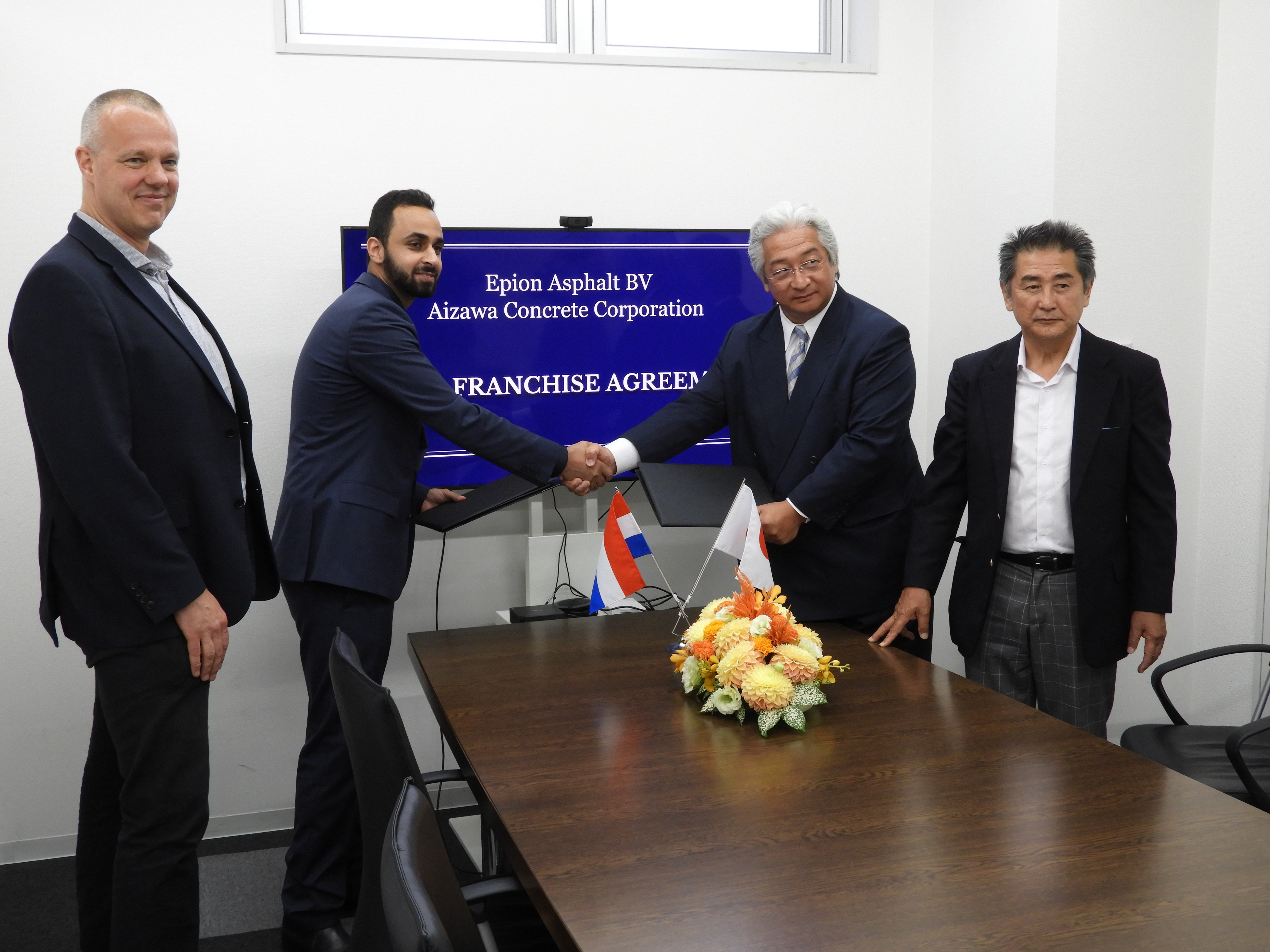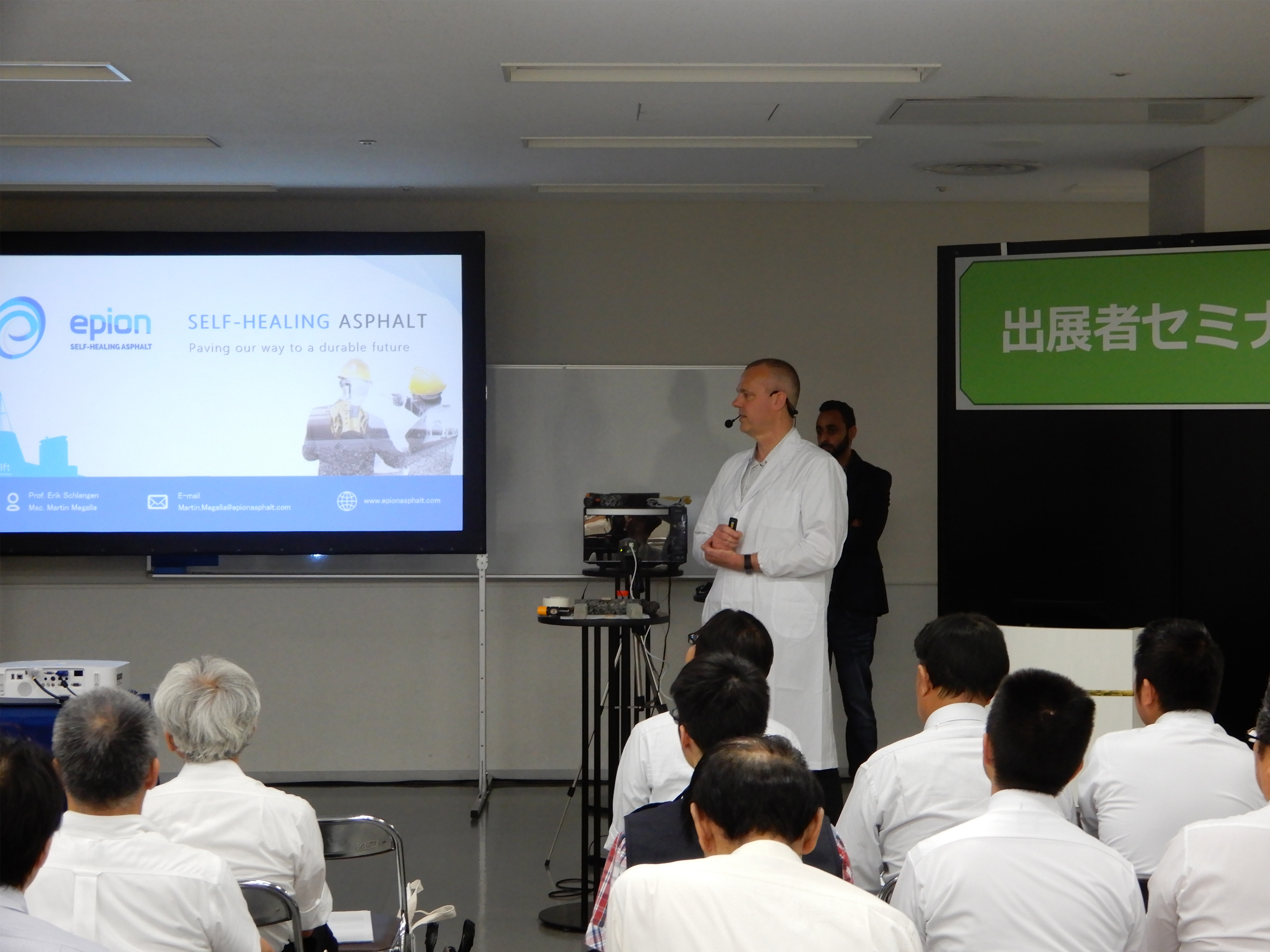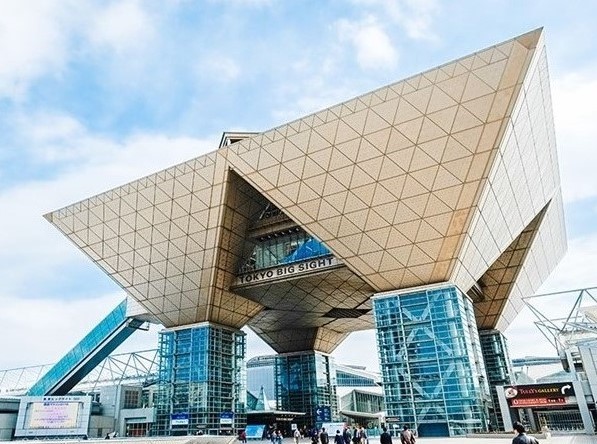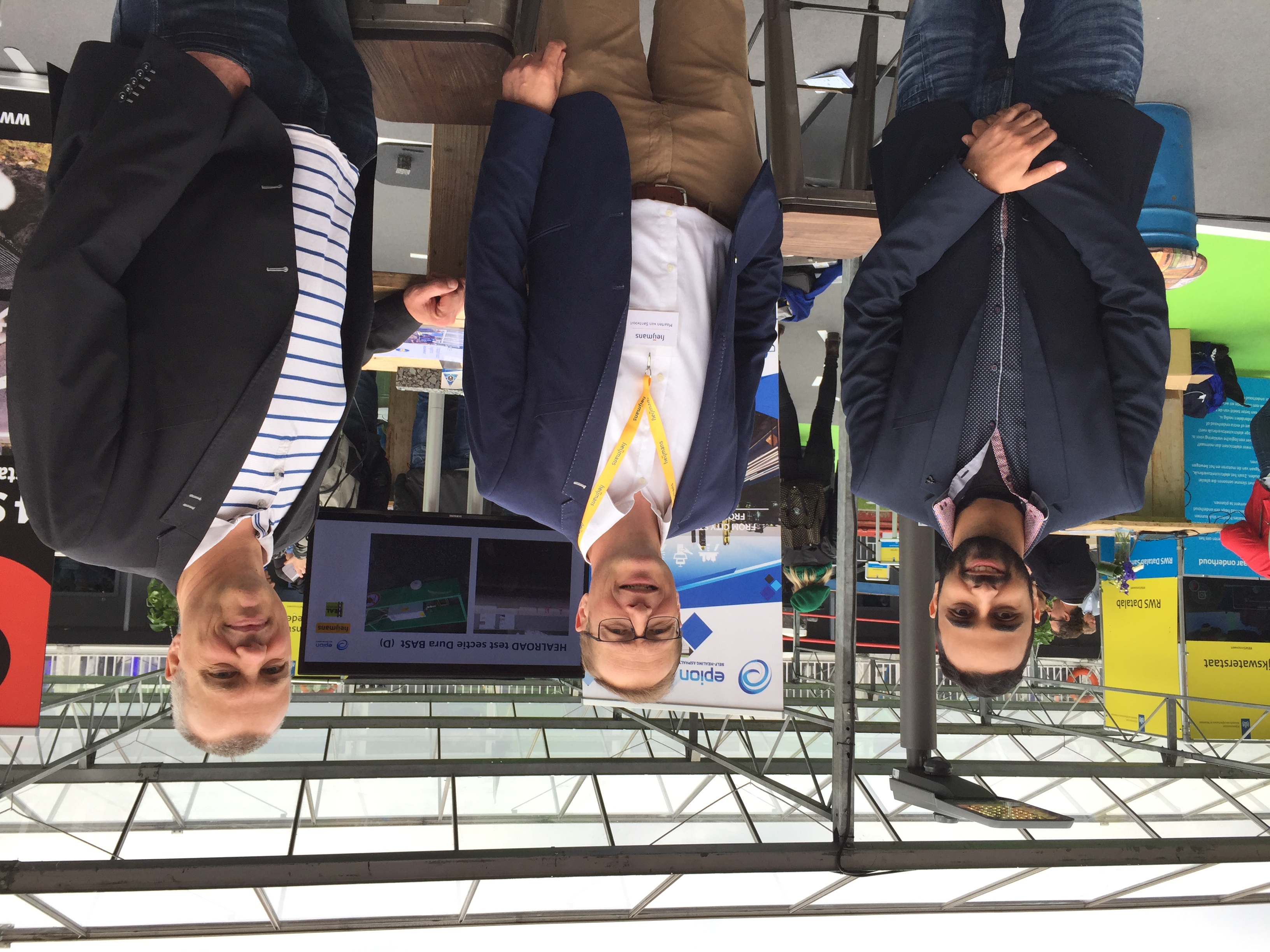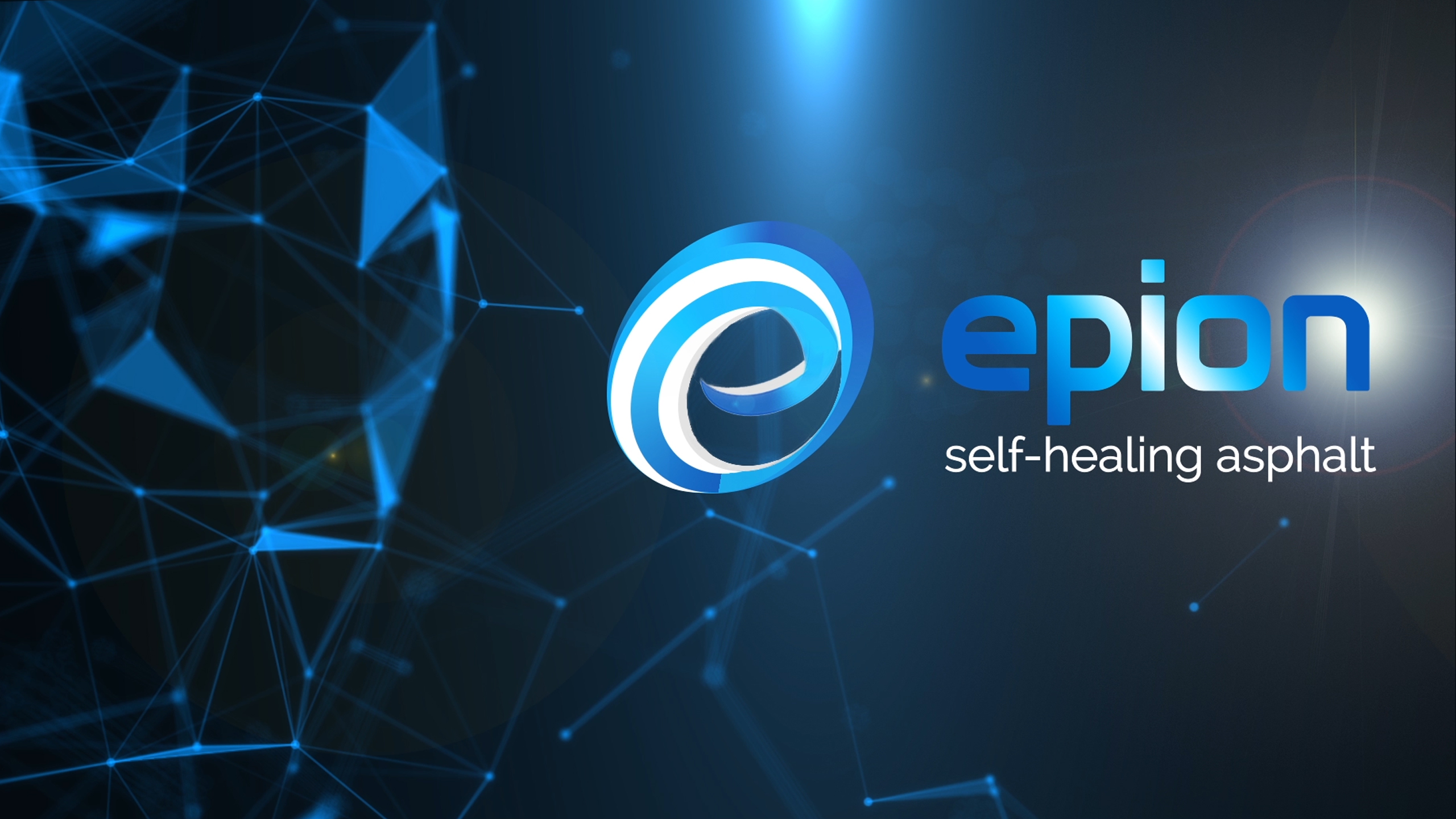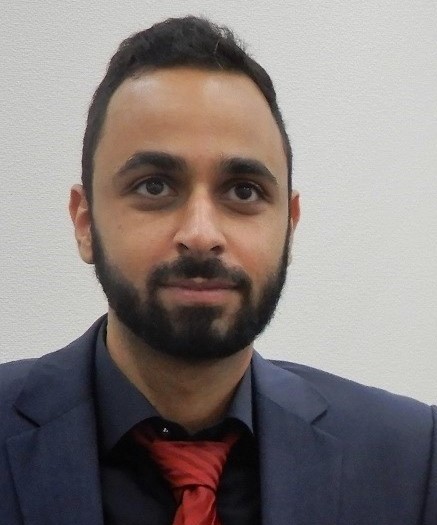The end of the road(s)?
Asphalt aging & decay
Asphalt pavements consist of mineral aggregates, bound together by a bituminous binder. As a result of various exposure conditions, this bitumen ages over the course of a pavement’s service-life, restricting its capacity to bind the aggregates together. This aging process makes the pavement vulnerable, and micro-cracks will start to emerge in the binder. Without repair, the cracking-process accelerates with the passage of time, resulting in the separation of aggregate particles from the pavement. This most commonly occurs on the pavement’s surface, a phenomenon known as raveling. In turn, raveling and similar degradation mechanisms can quickly develop into potholes and other serious safety concerns. The rate of decay varies greatly depending on the type of asphalt, traffic density and environmental conditions. The latter include, among others: exposure to UV-radiation, freeze-thaw cycles and imposed thermal deformations.
Porous asphalt is especially susceptible to such degenerative influences compared to its dense graded alternative. Porous asphalt may already start to ravel a mere 2 years after paving, accompanied by a loss of skid-resistance. When raveling has set in, it will develop into more serious safety hazards within months. Because of its susceptibility to raveling, the average service life of (conventional) porous asphalt roads (8 - 10 years) is much shorter than that of dense-graded pavements (18 years). Depending on the circumstances however, (partial) replacement of the (top) asphalt layer may be required much earlier to ensure driver safety. Besides being incredibly costly, such maintenance operations have a big environmental impact.
